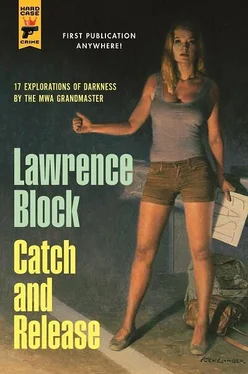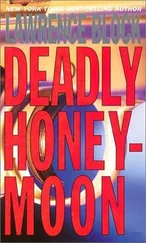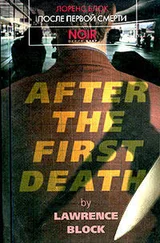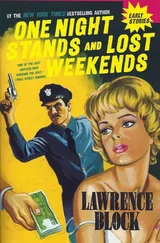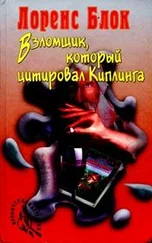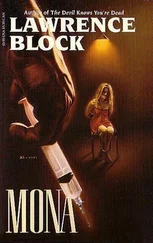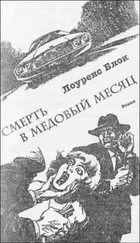They fell silent, thinking about it. Then the priest cleared his throat, and all eyes turned toward him.
“I should think,” he said, “that at least two of the figures are after the decimal point.” He drew a breath, smiled gently. “I suspect Soldier has neglected to tell us everything. It’s a forgery, isn’t it? That priceless Vermeer.” The soldier nodded.
“By Van Meegeren, I would suppose, if it fooled our Mr. Carmody the first time around. That fellow’s Vermeers, sold as the fakes that they are, have reached a point where they command decent prices in their own right. I don’t suppose this one is worth quite what that young soldier gave for it half a century ago, but it’s a long way from valueless.”
“A fake,” the policeman said. “How did you guess, Priest?”
“The clues were there, weren’t they? Why else would his heart sink when he peered at the painting as it reposed in his footlocker? He saw then by flashlight what he hadn’t seen in the gallery’s more favorable lighting — that he’d squandered all his profits on a canvas that was never in the same room as Vermeer. No wonder he gambled, hoping to recoup his losses. And, given the state of mind he must have been in, no wonder he lost everything.”
“An expert in New York confirmed what he already knew,” the soldier said. “Could he have sold it anyway? Perhaps, even as the Parisian dealer, knowingly or unknowingly, had sold it to him. But he’d have taken a considerable loss, and would risk blackening his reputation before he even had one. Better, he always felt, to keep the painting, and to hang it where he would see it every day, and never forget the lesson it was there to teach him.”
“And what was that lesson, Soldier?”
“That greed can lead to error, with devastating results. Because it was greed that led him to sink the better part of his capital into that worthless Vermeer. It was a bargain, and he should have been suspicious, but the opportunity to get it at that price led him astray. Greed made him want it to be a Vermeer, and so he believed it to be one, and paid the price for his greed.”
“And hung it on his wall,” the priest said.
“Yes.”
“And moved it to his office when he opened his own gallery. So that he could look at it every day while conducting his business. But others would see it as well, wouldn’t they? What did he tell them when they asked about it?”
“Only that it was not for sale.”
“I don’t suppose it harmed his reputation to have it known that this new kid on the block was sufficiently well-fixed to hang a Vermeer on his wall and not even entertain offers for it,” the doctor mused. “I’m not so sure he didn’t get his money’s worth out of it after all.”
They fell silent again, and the policeman dealt the cards. The game was seven-card stud, but this time the betting was restrained and the pot small, won at length by the priest with two pair, nines and threes. “If we were playing Baseball,” he said, raking in the chips, “with nines and threes wild, I’d have five aces.”
“If we were playing tennis,” said the doctor, who had held fours and deuces, “it would be your serve. So shut up and deal.” The priest gathered the cards, shuffled them. The soldier filled his pipe, scratched a match, held it to the bowl. “Oh, it’s your pipe,” the doctor said. “I thought the old man over there had treated us to a fart.”
“He did,” said the soldier. “That’s one reason I lit the pipe.”
“Two wrongs don’t make a right,” the doctor declared, and the priest offered the cards and the policeman cut them, and, from the fireside, the four men heard a sound that had become familiar to them over time.
“You see?” said the doctor. “He’s done it again. Try to counteract his flatulence with your smoke, and he simply redoubles his efforts.”
“He’s an old man,” the policeman said.
“So? Who among us is not?”
“He’s a bit older than we are.”
“And isn’t he a pretty picture of what the future holds? One day we too can sleep twenty-three hours out of every twenty-four, and fill the happy hours with coughing and snuffling and snoring and, last but alas not least, great rumbling pungent farts. And what’s left after that but the grave? Or is there more to come, Priest?”
“I used to wonder,” the priest admitted.
“But you no longer doubt?”
“I no longer wonder, knowing that all will be made clear soon enough. But I’m still thinking of greed.”
“Deal the cards, and we can do something about it.”
“As I understand it,” the priest went on, “crimes of greed, crimes with mercenary motives, fluctuate with economic conditions. When and where unemployment is high and need is great, the crime rate goes up. When times are good, it drops.”
“That would stand to reason,” the soldier said.
“On the other hand,” said the priest, “the criminals in Policeman’s story fell tragically under the influence of greed not when they lacked money, but when they were awash in it. When there was not so much to be divided, they shared fairly and equally. When the money flooded in, they killed to increase their portion of it.”
“It seems paradoxical,” the policeman agreed, “but that’s just how it was.”
“And your corporal-turned-art dealer, Soldier. How does he fit into the need-greed continuum?”
“Opportunity awakened his greed,” the soldier said. “Perhaps it was there all along, just waiting until the chance came along to make money on the black market. We could say he was greediest when he bought the fake Vermeer, and again when he realized what he’d done and tried to recoup at the card table.”
“A forlorn hope,” said the doctor, “in a game like this one, where hours go by before someone deals the cards.”
“His money gone,” the soldier went on, “he applied himself like a character out of Horatio Alger, but was he any less avaricious for the fact that his actions were now ethical and lawful? He was as ambitious as ever, and there was a pot of gold looming at the end of his rainbow.”
“So greed’s a constant,” said the priest, and took up the deck of cards once again.
“It is and it isn’t,” the doctor said. “Hell, put down the damned cards. You just reminded me of a story.” The priest placed the cards, undealt, upon the table. By the fireside, the old man sighed deeply in his sleep. And the priest and the soldier and the policeman sat up in their chairs, waiting for the doctor to begin.
Some years ago (said the doctor) I had as a patient a young man who wanted to be a writer. Upon completion of his education he moved to New York, where he took an apartment rather like your art dealer, Soldier, but lacking a faux-Vermeer on the wall. He placed his typewriter on a rickety card table and began banging out poems and short stories and no end of first chapters that failed to thrive and grow into novels. And he looked for a job, hoping for something that would help him on his way to literary success.
The position he secured was at a literary agency, owned and operated by a fellow I’ll call Byron Fielding. That was not his name, but neither was the name he used, which he created precisely as I’ve created an alias for him, by putting together the surnames of two English writers. Fielding started out as a writer himself, sending stories to magazines while he was still in high school, and getting some of them published. Then World War Two came along, even as it did to Gary Carmody, and Byron Fielding was drafted and, upon completion of basic training, assigned to a non-combat clerical position. It was his literary skill that kept him out of the front lines — not his skill in stringing words together but his ability to type. Most men couldn’t do it.
Читать дальше
